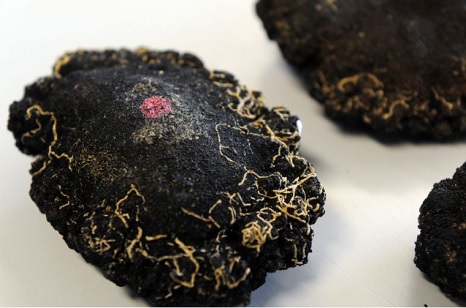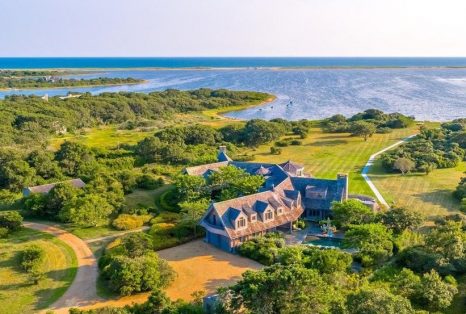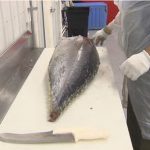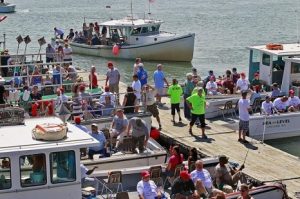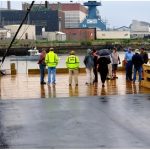Tag Archives: climate change

Fishing industry unimpressed with Biden Harris’s NOAA/NMFS climate crisis notions. (Offshore Wind Farms, either!)
President Biden ordered NOAA to collect information from a wide range of groups on increasing the resilience of fisheries as part of his plan to address climate change and to protect 30% of U.S. ocean areas by the year 2030. The NOAA directive is included in the sweeping executive order Biden signed his first week in office that made “the climate crisis” a centerpiece of his presidency. “Fisheries, protected resources, habitats and ecosystem are being affected by climate change,” acting NOAA Fisheries chief Paul Doremus said at the beginning of yesterday’s conference call. >click to read< 07:55
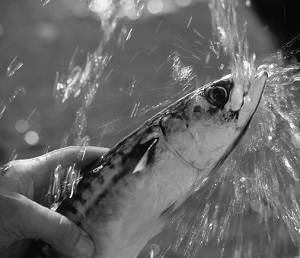
The World’s Supply of Mackerel Is on the Move
The Northeast Atlantic mackerel is a small fish with grey or greenish-blue scales and tigerlike black stripes from mouth to tail. Lacking a swim bladder, the gas-filled organ that helps most fish move up and down in the water, the mackerel would sink and die if it ever stopped. So it is always on the move, looking for plankton, crustaceans, and other small fish. In recent years, the mackerel’s unceasing motion and radically increased abundance have taken it farther north, to Greenland or Svalbard, which lies between Norway and the North Pole, and northwest, to Icelandic waters. And when the fish turned up, the Icelanders took advantage. By tradition, their nation had no claim to this fish, but starting in the mid-2000s, when the lucrative fish arrived in great numbers, they struck. >click to read< 11:09
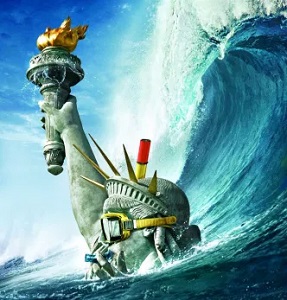
Are Temperatures and Sea Levels Rising Dangerously? Hardly
There are two widely held climate-change beliefs that are simply not accurate. The first is that there has been a statistically significant warming trend in the U.S. over the last 20 years. The second is that average ocean levels are rising alarmingly due to man-made global warming. Neither of these perspectives is true; yet both remain important, nonetheless, since both are loaded with very expensive public policy implications. To refute the first view, we turn to data generated by the National Oceanic and Atmospheric Administration (NOAA) for the relevant years under discussion. >click to read< 14:24
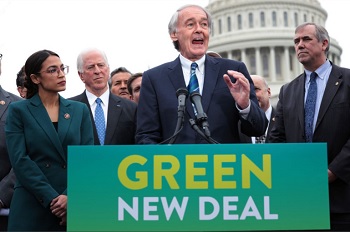
Not Promoting Nuclear Power is hypocrisy. Wind and solar promotors lie about the problems. Lots of problems
Whatever your views on climate change, the idea that trying to run modern, civil societies on sunshine and breezes might somehow prevent it is, of course, a complete nonsense. Nuclear to Replace Wind and Solar – In the words of James Hansen, the scientist most responsible for promoting global warming, wind and solar are “grotesque” solutions for reducing CO2 emissions. Michael Shellenberger, a prominent activist, has the same opinion. Hansen and Shellenberger, as well as many other global warming activists, have come to the conclusion that nuclear energy is the only viable method of reducing CO2 emissions from the generation of electricity. >click to read< 09:14

A Greek tragedy? New England lobsters caught in perfect storm of warming seas and save the whales activism
Climate change, ocean acidification,,, it’s nothing compared to what will become of the industry if the self-coronated “Prince of Whales,” New Hampshire’s Richard “Max” Strahan, has his way. To lobstermen, though, Strahan has proven himself far more than a vaudevillian nuisance. The kicker, says Strahan, who gets more animated as our conversation goes on, is that the whales are pretty much doomed no matter what. In 2017, the North Atlantic right whale population didn’t reproduce at all, usually considered the death knell for an endangered species. In late June, a six-month-old right whale calf was found dead with propeller wounds off the coast of New Jersey. Lobstering had nothing to do with it, but it won’t help the industry’s case. “It’s not really that they’re being caught in fishing gear,” Strahan admits. “It’s the fact that they don’t reproduce anymore. That’s what’s killing them.” >click to read< 08:07
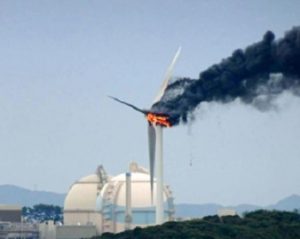
Michael Shellenberger: Let’s Get Serious, Let’s Go Nuclear
Whatever your views on climate change, the idea that trying to run modern, civil societies on sunshine and breezes might somehow prevent it is, of course, a complete nonsense. One environmentalist who called it out, loud and early, was Michael Shellenberger. As a long-time advocate for reliable, affordable and safe nuclear energy, and critic of intermittent renewables, calling wind and solar worse than useless, Michael combines common sense, logic and reason, in an era when those attributes have become scarce commodities. Here’s Michael having a crack at some of those who would drive us back into the Stone Age, if they were ever given the chance. Why Climate Activists Will Go Nuclear—Or Go Extinct >click to read< 09:03
 Rep. Kennedy Backs Offshore Wind – “Jobs and Justice Initiative” “Through the JJI we will deploy a clean energy job core to support on and offshore wind, solar panel installation, energy storage, energy efficiency, building retrofits, cleaning of toxic sites, urban farm and community garden installations, national park maintenance, and environmental justice,” Kennedy said. >click to read<
Rep. Kennedy Backs Offshore Wind – “Jobs and Justice Initiative” “Through the JJI we will deploy a clean energy job core to support on and offshore wind, solar panel installation, energy storage, energy efficiency, building retrofits, cleaning of toxic sites, urban farm and community garden installations, national park maintenance, and environmental justice,” Kennedy said. >click to read<
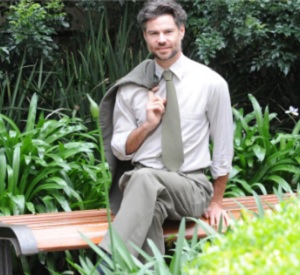
Michael Shellenberger: Sorry, But I Cried Wolf on Climate Change – A Mea Culpa
If climate change is a problem, then wind turbines and solar panels aren’t a solution: heavily subsidised and unreliable wind and solar are an economic and environmental disaster. When climate alarmists managed to hijack energy (and with it economic) policy it was a case of lunatics (Offshore Wind 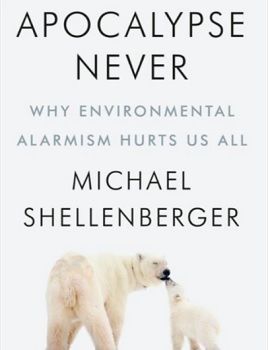 Farmers, politicians)taking over the asylum. Last week, Michael Shellenberger hit the headlines with a heart-felt mea culpa, the foundation for which is laid out in his latest work, ‘Apocalypse Never: Why Environmental Alarmism Hurts Us All’. At 459 pages it’s a thoroughly researched piece of academic work that can’t be easily dismissed or ignored; as a grand and exhaustive effort to expose the fanciful and far-fetched claims being made about a planet on the brink it’s had a perfectly predictable result. >click to read< 16:38
Farmers, politicians)taking over the asylum. Last week, Michael Shellenberger hit the headlines with a heart-felt mea culpa, the foundation for which is laid out in his latest work, ‘Apocalypse Never: Why Environmental Alarmism Hurts Us All’. At 459 pages it’s a thoroughly researched piece of academic work that can’t be easily dismissed or ignored; as a grand and exhaustive effort to expose the fanciful and far-fetched claims being made about a planet on the brink it’s had a perfectly predictable result. >click to read< 16:38
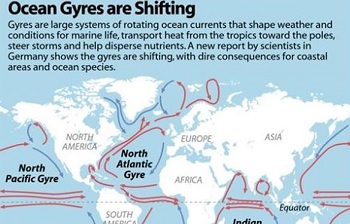
New study shows ocean currents are shifting toward the poles
In the past 40 years, eight of the world’s major ocean gyres (wind-driven current systems) have been slowly shifting toward the poles at a rate of about a mile every two years. Up to now, available observations have been sparse and short in duration, making it difficult to track any dynamic changes of large‐scale ocean circulation. This is what experts at the Alfred Wegener Institute, Helmholtz Centre for Polar and Marine Research (AWI), analyzing long-term global satellite data of ocean surface temperature and sea levels found. >click to read<10:49
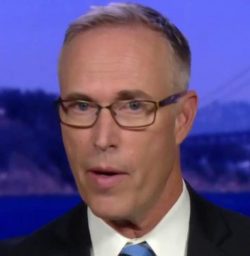
Managing A Lucrative Resource In The Face Of Climate Change
Conservationists and commercial fishing industry leaders came together on the need to restructure the Magnuson-Stevens Fishery Conservation and Management Act to adequately consider climate impacts during a panel discussion in Honolulu. But that was about it for the common ground they found during the last stop on U.S. Rep. Jared Huffman’s nationwide “listening tour” on reforming the MSA. The panelists, which also included state and federal officials, had diverging views on the effectiveness of marine national monuments like Papahanaumokuakea and whether the eight regional councils that the law set up to manage fishery resources nationally should have designated seats to ensure representation from environmental, indigenous and scientific interests as well as the commercial fishing industry. >click to read< 10:38
What ever happened to HR-200? I have no interest in these people reauthorizing anything.
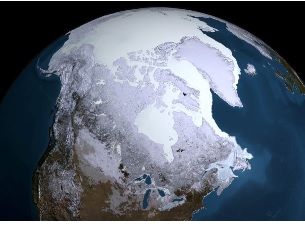
Could Global Cooling Be Our Bitter-Cold Reality?
Trying to imply that cooling is right around the corner when we’re watching record-breaking warm ocean temperatures to me seems a big stretch. But current facts and the history around the five previous Ice Ages that came and melted before fossil fuels became recognizable words may be worthy of review. The real climate crisis may not be global warming, but global cooling, and it may have already started. These events may not be an anomaly, but a predecessor of things to come: Planting was one month late due to cold spring weather across the Great Plains of North America in both 2018 and 2019. >click to read< 11:15
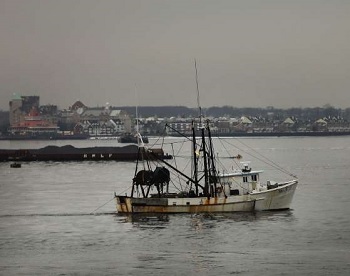
Climate Change Is Sending This Fluke Fight to Court
Disputes over fish quotas are not new, and the $25.2 million East Coast market for fluke—although a reliable bread-and-butter fish—is not particularly lucrative. And New York has sued to alter the quota before. But this lawsuit is being watched closely because it introduces a new factor into the decades-old quota system: the impact of climate change. Quickly warming waters have reshaped the entire fishing industry on the East Coast, moving the fluke dramatically to the north. The lawsuit argues that now 80% of all fluke catches occur within 150 miles of Long Island and that state allocations need to be updated to reflect the fishes’ evolving location. >click to read< 08:17
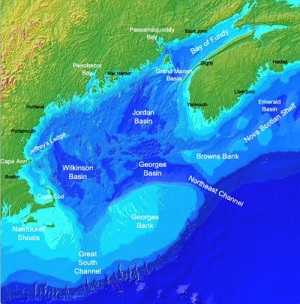
The Voice Of The Lobster
Over in the Tweetiverse, someone was all boo-hoo about the eeevil effects of “climate change” that he claimed had “already occurred”. He referenced a publication from a once-noble organization that sadly has drunk the “CLIMATE EMERGENCY” koolaid, National Geographic. So I read it, and the only thing in that, other than what “might” and “probably” and “could” occur at some uncertain time in the future, was a mention of “oceanic heatwaves” in Maine and surroundings, viz: “The U.S. is already grappling with climate change’s heavy costs, like when a powerful ocean heatwave struck the Northeast and devastated the region’s lobster fishery.” As a long-time commercial fisherman, that piqued my interest. So I looked to see what I could find out. >click to read< 05:56
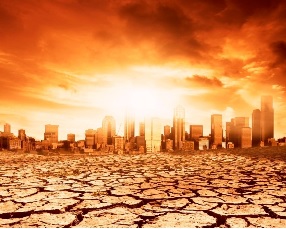
NASA, NOAA’s Latest Climate Scare Based On Intentionally Flawed Data
Because science is the pursuit of knowledge, and political actions almost necessarily restrict personal freedom, science, laws, and regulations should use the best available data. Using bad data undermines both the pursuit of truth and the legitimate justification of laws and regulations. Everyone, from the far left to the far right on the political spectrum, should be able to agree about this. >click to read< 12:11
From July 30, 2019, ‘Hidden’ NOAA temperature data reveals 6 of the last 9 months were below normal in the USA, and NOAA can’t even get June right – >click to read<
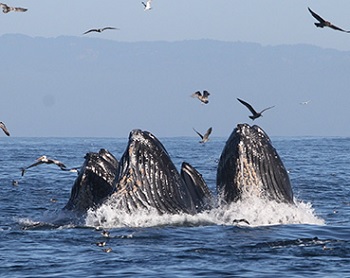
Study connects marine heat wave with spike in whale entanglements
A new study shows how the record-breaking marine heat wave of 2014 to 2016 caused changes along the U.S. West Coast that led to an unprecedented spike in the numbers of whales that became entangled in fishing gear. “With the ocean warming, we saw a shift in the ecosystem and in the feeding behavior of humpback whales that led to a greater overlap between whales and crab fishing gear,” said Jarrod Santora, a researcher in applied mathematics at UCSC’s Baskin School of Engineering and first author of the study,,,,>click to read< 10:02

2019: The Year Of Peak Green Bullsh*t
2019 was the most extraordinary year of green bullshit yet. Despite the planet being a wealthier, healthier and safer place than it was when fears of global warming first appeared on the political agenda in the 1980s – and despite the failure of more than half a century of green prognostications – crazy and destructive green ideas still dominate politics. >click to read< 10:48
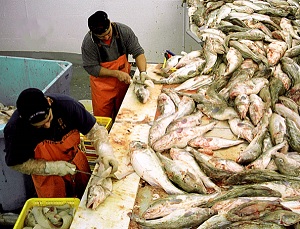
Stock decline leads to historic shutdown for Gulf P-cod
Gulf of Alaska Pacific cod fishermen will be keeping their gear dry this winter: The federal fishery has been closed for the 2020 season. The North Pacific Fishery Management Council decided to close the fishery due to concerns about historic low biomass shown in the latest stock assessment. The struggles of the stock have been linked to climate change more than excessive fishing. In 2014, the Gulf of Alaska experienced a major influx of warm water, linked to the El Nino event in the south Pacific. >click to read< 15:44
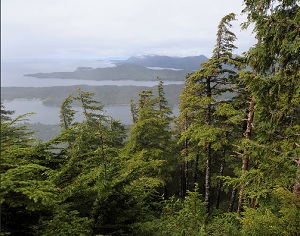
Commentary: Northwest must speak for trees, salmon in Alaska
Keeping the Roadless Rule in force for the Tongass protects resources and climate we enjoy at home.,, We rise before dawn, our 43-foot salmon troller, the Nerka, nestled among rocks in one of our favorite Southeast Alaskan bays. Pulling the anchor and puttering out to the fishing grounds, eyelids are still half-mast, minds precariously balanced between dreams and blurred reality from weeks of 18-hour days, hauling salmon aboard one fish at a time. >click to read< Search Results for: Tele Aadsen >click here< 12:10
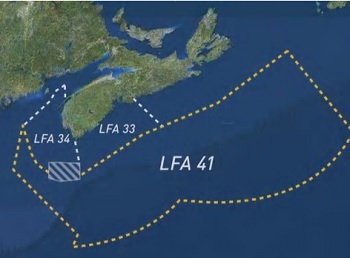
Nova Scotia lobsters still in sweet spot despite climate change
Canadian scientists have attempted to predict the impact of a warming ocean caused by climate change on the lucrative Nova Scotia and New Brunswick lobster fishery on the Scotian Shelf. In most areas, lobster habitat in the offshore is expected to remain suitable or improve over the next few decades, according to a study published in the journal Frontiers of Marine Science. Offshore is defined as beyond 19 kilometres from land. “Some of the climate projections suggest that it may not have a big impact over the next number of years on adult lobsters,” >click to read< 08:49

Who Are the “Experts” on Climate Change?
We live in complicated times, immersed in a society of incessant, loud, conflicting voices. Nowhere is this more true than in the discussion of the impact of carbon dioxide on the planet, oceans, better known as “climate change.”,,, So who are the “Experts” that we should listen to? For starters it’s important to understand that “Experts” is not a homogeneous collection of people. You can divide Experts into just two very different subgroups: “Real Experts” and “So-Called Experts.” So-Called Experts are like doctors on TV: actors who wear a white coat. They look and sound like the real thing — but clearly they are not. How do we tell the Real Experts from the Imitations? >click to read< 16:26
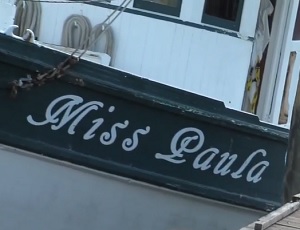
2019 Climate Ready Fisheries Act: Rep. Cunningham meets with Lowcountry fishermen, will introduce sustainable fishing bill
2019 Climate Ready Fisheries Act – Congressman Joe Cunningham met with fishermen on Shem Creek to discuss the impacts of climate change on the fishing industry. The democratic representative for South Carolina’s 1st Congressional District says he plans to introduce a bill on Capitol Hill Tuesday that will encourage sustainable fishing. Rep. Cunningham says development and rising costs have forced fishermen out of business Shem Creek. But tonight he says the way to save the industry is to preserve the environment. >click to read< 12:05
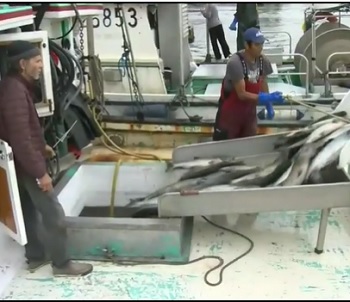
B.C. salmon fishing industry ask feds to provide disaster relief
The commercial fishing industry in British Columbia is in turmoil.,,,“British Colombia’s coastal salmon fishery is experiencing a disaster,” said Gavin McGarrigle, regional director of Unifor Western. “It’s hard to overstate the importance of the salmon run to local economies up and down B.C.’s coast.” He added: “There is an industry wide consensus about both the degree of the disaster and the urgent need to help workers and communities impacted by the collapse of the 2019 salmon run.” >click to read< 16:43

Dr. Tim Ball Defeats Michael ‘Hockey Stick’ Mann’s Climate Lawsuit
The Supreme Court of British Columbia has dismissed Dr. Michael Mann’s defamation lawsuit against skeptical Canadian climatologist Dr. Tim Ball. Full legal costs were awarded to Dr. Ball, the defendant in the case. The Canadian court issued its final ruling in favor of the Dismissal motion that was filed May 2019 by Dr. Tim Ball’s libel lawyers. Mann’s “hockey stick” graph, first published in 1998, was featured prominently in the U.N. IPCC 2001 climate report. >click to read<15:07
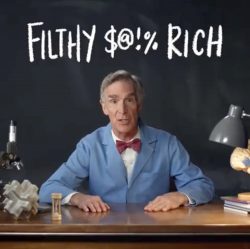
Google Pitchman Bill Nye: Fighting Climate Change Will Make You ‘Filthy F-cking Rich’
Inventing climate change solutions or technology could you make you a fortune, according to liberal media favorite: Bill Nye “The Science Guy.” Nye shared an F-bomb dropping video on Instagram on Aug. 13. He said that if his typical warning that the “oceans are rising” wasn’t enough to make people care, he had another reason for them to take action on climate change. “I’m gonna level with you. The real reason you should do your part to combat climate change is — It’ll make you filthy f—king rich” Nye shouted. Video >click to read< 11:12
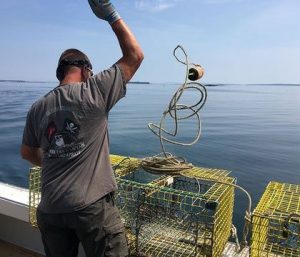
Changing climate boosts Maine lobster industry — for now
Maine’s lobster industry has found itself in something of a climate change sweet spot. The state’s coastal waters are still cold enough for lobster to thrive, but warming ocean temperatures are now encouraging them to settle here, mate and eventually shed their hard shells.,,, “Maine has enjoyed this abundant, expanding resource but everything that comes up must come down, and that is very related to climate change because that is very related to water temperature,” said Genevieve McDonald, a lobsterman and Stonington’s new representative in the Maine Legislature. >click to read< 16:44

‘Hidden’ NOAA temperature data reveals 6 of the last 9 months were below normal in the USA, and NOAA can’t even get June right
While media outlets scream “hottest ever” for the world in June and July (it’s summer) and opportunistic climate crusaders use those headlines to push the idea of a “climate crisis” the reality is for USA is that so far most of 2019 has been below normal, temperature-wise. Little known data from the state of the art U.S. Climate Reference Network (which never seems to make it into NOAA’s monthly “state of the climate” reports) show that for the past nine months, six of them were below normal, shown in bold below. The data, taken directly from NOAA’s national climate data page, shows not only that much of 2019 was below normal, but that the US Temperature average is actually cooler,,, >click to read< 15:19
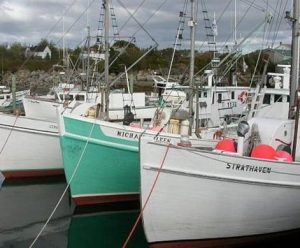
Climate change is now a fact of life in Atlantic Canada fishery
The Atlantic Ocean is one of the most productive marine environments in the world, with an abundance of marine organisms from crabs, to lobsters and wild fish stocks, supporting over 55,000 jobs in industries like fishing, aquaculture, and tourism. On April 10, the Minister of Fisheries, Oceans and the Canadian Coast Guard, the Honourable Jonathan Wilkinson released what is the first Atlantic Ocean status report, called Canada’s Oceans Now–Atlantic Ecosystems,2018 >click to read<15:52
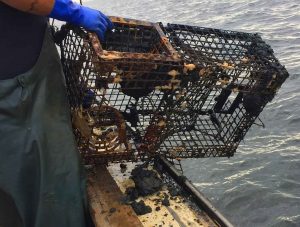
Ghost Fishing Off Long Island’s Coast
On the deck of the vessel Christine & Jennifer, a dozen tiny mud crabs, each smaller than a fingertip, scuttle out of a rusty lobster trap. The crabs move sideways, exploring the edges of these newly discovered surfaces with their long thin legs. Dan Kuehn, a research technician at the Cornell Cooperative Extension, a nonprofit agency affiliated with Cornell University, inspects the next lobster pot. Something is moving among the wires. He peers inside and says: “One undersized lobster.” Kuehn cradles the small lobster in his hands. This one is lucky — it’s still alive. >click to read<15:46
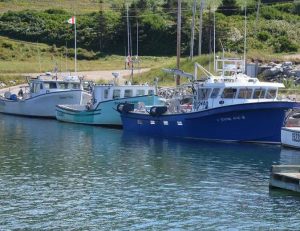
Fishermen weathering effects of climate change
The lobster off western Cape Breton didn’t get the memo about thriving in colder water. “They should have told the lobsters that this year,” said John Phillip Rankin, a fisherman from Mabou Coal Mines. “By the first of July, it was warm and they started snapping but we were after putting our traps on the wharf. They start jumping when it gets warmer. They do all right in cold water. It was a decent season but it was cold-water trapping, you could tell. Last year, it was warm right through, a better season. The landings were quite a bit higher.” >click to read<14:35






